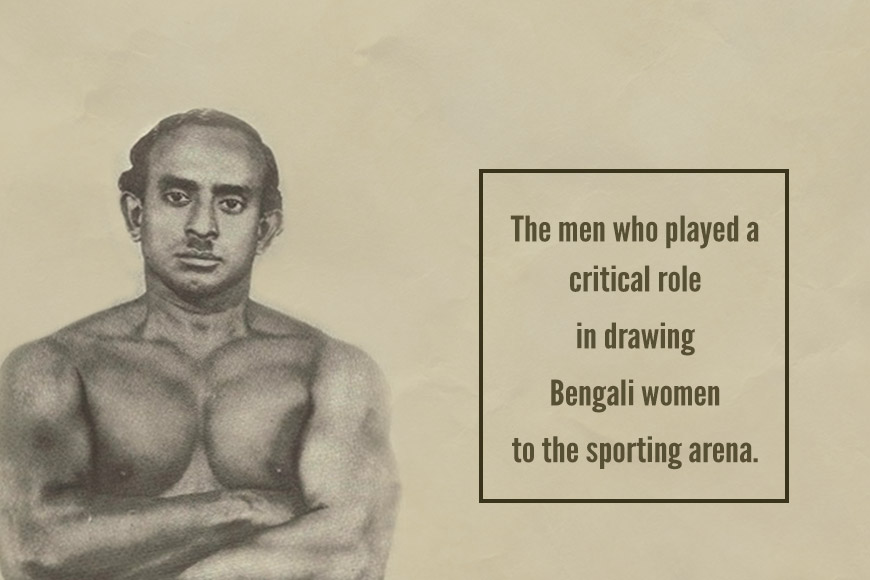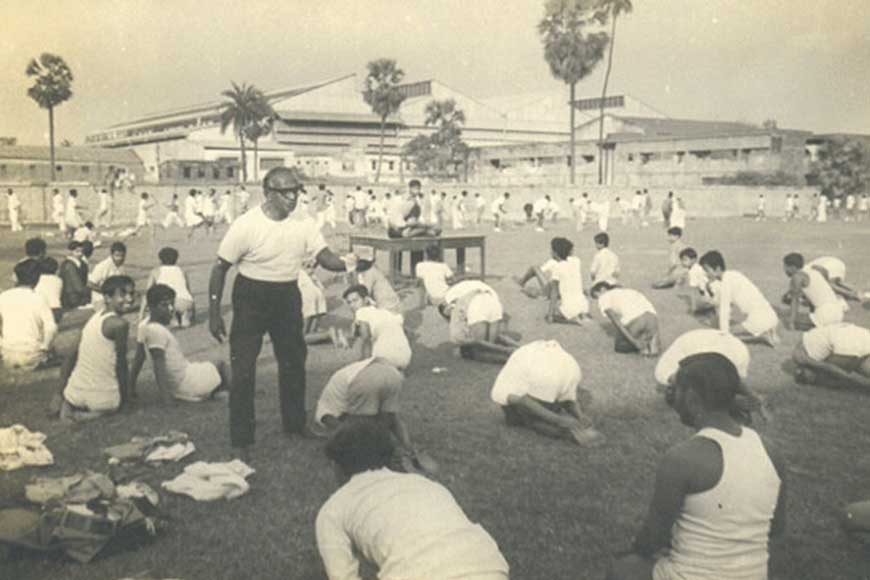Why Bengali sportswomen are indebted to these men

He was known as Iron Man. Nothing terribly original here, plenty of male bodybuilders and weightlifters, not to mention a few men in other walks of life, have earned that sobriquet. No, that is not what makes Nilmoni Das unique. What does make the celebrated Bengali bodybuilder stand out is an article titled ‘Matrijatir Shorirchorcha’ (the closest translation would be ‘Physical Training for Women’). But more on that later. First, the story behind the story.
As a child, Nilmoni was passionate about football. Unfortunately, he wasn’t built for sport. Painfully thin and small for his age, he frequently found himself short of breath on the football field. Thus began efforts to strengthen his lungs, which meant regular running. This improved matters to the extent that his teammates began calling him ‘Attila’ in recognition of his prowess on the football field. The nickname may have been dubious, the admiration behind it was undeniable.
 Nilmoni Das training his students
Nilmoni Das training his students
Fittingly, it was a local football match that brought home to him the importance of physical fitness, particularly when it came to self-defence. Face to face with furious opposition supporters after his team beat another club, he was at the receiving end of a savage assault, from which he was finally rescued by two local bodybuilders, Rishi and Prakash Ghosh. Sniggering at his slight build, Rishi told Nilmoni that unless he grew big and strong, he would always have to depend on others for help in a crisis.
It was a turning point in Nilmoni’s life. Unknown to his friends, he borrowed two dumb-bells belonging to his father and embarked on his Iron Man journey. But that journey is beyond the scope of this piece. What is important is the article which Nilmoni wrote for ‘Bharatborsho’ in 1934, stating his belief that women needed to be physically fit in order to adequately defend and empower themselves.
The article is important primarily because while a few prominent women reformers in the first decade of the 20th century were growing increasingly vocal about their opinion that women’s education ought also to include physical training, Nilmoni’s was perhaps the earliest endorsement of this view in print, in a leading publication of the age. Coming as it did from a man, who himself was only 23 at the time, the article offered a different perspective on the issue.
In our times, Nilmoni Das would probably have been hailed as a true feminist. What made the young man think the way he did we will never know, but he almost certainly drew inspiration from Bankim Chandra Chattopadhyay’s seminal novel ‘Devi Chaudhurani’, featuring the life and career of a renowned Bengali woman outlaw, whose physical trainer was yet another man, who became her closest associate.
Also read : First Indian footballer to play in Europe
Nilmoni’s article was embellished with images of various women in exercising poses, such as the one of Mira Banerjee twisting an iron bar! In a subsequent article, Nilmoni emphasised the physical wellbeing of a nation’s population and its importance in nation-building. In this article, Nilmoni set out a diet chart for women and included the image of Reba Das, a married woman performing freehand exercises in a saree. As an aside, Nilmoni pointed out in the article that physical exercise was particularly important for married women, since it apparently mitigated the pain of childbirth.
Thanks largely to the prominence of these articles, the movement supporting the increased participation of Bengali women in sport grew stronger. Writing for Amritabazar Patrika in 1939, internationally renowned cyclist Janki Das, who was also the honorary secretary of the National Cyclists’ Federation of India, expressed the opinion that cycling was among the best forms of exercise for women, primarily owing to their “slender bodies”, which found it difficult to bear the strain of more vigorous exercises.
No matter how doubtful that claim sounds nearly nine decades down the line, the fact remains that men such as Nilmoni Das and Janki Das were seriously engaging with an issue that was still taboo in a majority of Bengali homes. As Janki Das wrote, women should discard “false shyness” and take to cycling in hordes.
These pioneers have remained largely ignored in our times. But the Swapna Burmans and Jyotirmoyee Sikdars who have made Bengal proud in the sporting arena no doubt owe a debt of gratitude to the men who dared to defy convention.










